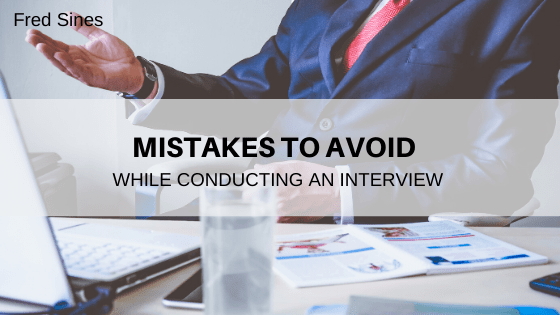
There are a plethora of articles floating around about ways to avoid making mistakes when you’re being interviewed for a job. If you do an Internet search about interview tips, there’s no doubt that you’ll find hundreds or thousands of articles about how to dress, the importance of your body language and the best way to answer the questions that most potential bosses ask. But what if you’re on the other side of the table? You may not have realized that there are mistakes that you can make if you’re the one conducting the interview. In order to make sure that your interviews are landing your company the best possible hires, there are some things you should try to avoid doing.
Taking Over the Interview
While it’s important that the candidate knows what your company is about and what you stand for, this interview isn’t about you. Ideally, the person you’re interviewing has already done their homework on the company and possibly even on you, so the interview isn’t about making yourself known to the person you’re talking to. If the interview you’re conducting lasts for 20 minutes, the candidate ideally does the talking for 12-15 of them.
Probing Too Deep
While it’s fine to want to know how the person you’re interviewing spends their personal time, you shouldn’t probe too deeply into what they do on their own time. If the candidate is into any sort of unscrupulous activities, that will come up in a background check or some other means; they’re probably not going to discuss them in the interview anyway. Asking about personal hobbies is fine, but don’t use those to determine how good of an employee a person would be.
Rapid Fire Interviewing
While some huge corporations and graduate schools like to use rapid-fire interview processes, there are plenty of downsides to this method. It’s fine to try to figure out how the candidate will handle himself or herself in a stressful situation, but there are probably better ways to do it than rudely interrupting them or trying to fire off 100 questions in a five-minute span.
Being Rhetorical
While we already established that a candidate will ideally already be familiar with your company and maybe even with what the job they’re interviewing for entails, never assume that. Avoid phrases like, “you probably already know” and assume that they know nothing. If they’ve done their research, let them prove that to you.
This blog was originally published on Fred Sines website.